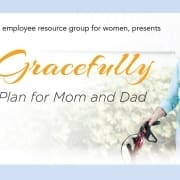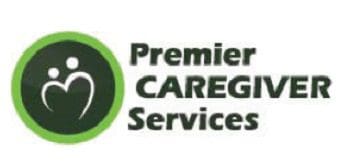 It can be extremely difficult to talk to aging parents about getting extra help at home. In a current report that discussed a survey by AARP, 9 out of 10 seniors expressed interest in staying in their homes while aging. However, it is estimated that 70% of seniors will need in-home assistance to stay safe while aging in place. So, how do you speak to your aging parents about getting outside help from a home health care agency? While it can be extremely difficult to do so, it can be done. It must be done with care and sensitivity. Otherwise, you risk the discussion turning into an argument or an immediate shutdown on the topic.
It can be extremely difficult to talk to aging parents about getting extra help at home. In a current report that discussed a survey by AARP, 9 out of 10 seniors expressed interest in staying in their homes while aging. However, it is estimated that 70% of seniors will need in-home assistance to stay safe while aging in place. So, how do you speak to your aging parents about getting outside help from a home health care agency? While it can be extremely difficult to do so, it can be done. It must be done with care and sensitivity. Otherwise, you risk the discussion turning into an argument or an immediate shutdown on the topic.
A lot of aging seniors see home health care as a surrender of freedom. While it may seem that way, hiring an in-home care provider can actually bring more freedom to a senior’s situation than anything else! Whether aging parents are resisting because they see home health care as a surrender of independence or fear they will become a burden, these 5 expert tips will help make the discussion easier.
5 Tips on Starting a Discussion about Getting an In-Home Provider
1. Don’t Discuss the Limitations, but the Advantages to Home Health Care
One of the most important things to know about talking to your parents about home health care is that you should go into it positively. Most people will get defensive when first confronted with the idea of giving up independence. However, if you discuss the advantages of home health care instead of the limitations, they are more likely to be open to the idea. One of the best advantages to discuss with aging parents is that in-home health care is better than assisted living. As we stated earlier, 90% of elderly adults want to age in their home. That is one of the biggest advantages of home health care and making clear from the very beginning often makes the discussion a lot easier.
2. Suggest Home Health Care Instead of Insisting on Assistance
Being told to do something is never easy. This is especially true when role reversal is involved and a parent is being told to do something by their child. By suggesting home health care as an option instead of insisting on assistance, elderly parents are more likely to be open to the idea. Daily Caring – an award winning caregiver resource – has great insight into how to suggest home health care. They recommend that you “talk about how they’ve [your parents] reached a point in their life where they deserve a personal assistant to make life easier and smoother”. By spinning a home health care assistant as a luxury, parents may be more open to the idea of making their life easier.
3. Focus on Others Who Have Tried Home Health Care and Benefited
Before approaching the subject of home health care with a parent, do some research. Do they have close friends who use home health care assistants? Who do their friends use and how do they like having help around the home? By focusing on others, especially close friends, who have tried home health care and benefited from it, your parent is more likely to open up to the idea. As the common saying goes, “the proof is in the pudding”. If their friends are really happier with some in-home assistance, why wouldn’t they be? Focus on the benefits of home health care including:
4. Include Them in the Decision Making Process
When it comes down to it, the suggestion for home health care can be yours but the decision should be your parents. Make it clear to your parent that they will be a part of the entire process of choosing a caregiver. They will be the one person spending the most time with this caregiver, so it is important they like them and feel comfortable with them. By giving your elderly parent a say in the process, it will help them feel more in control. Control is extremely important during a time in which they are losing some of their independence, so be sure to include them in each decision.
5. Run Care Giving Trials with Different Agencies
It is always better when you can test something out before purchasing it. When it comes to home health care, most agencies will offer “trial periods” to see if in-home care is the right option. By making it clear to your parent that the first run is a trial and nothing permanent, they may be more open to giving it a shot. Homecare.com has a great tip, too, regarding trial runs. While your parent is getting to know their home health care professional, take a trip! Being out of the picture can give your parent a real chance to get to know the caregiver and what it would be like to have home health care assistance without it feeling permanent.
Home health care is a sensitive topic for parents and children alike, but these tips can help make the approach easier. By softening the idea of home health care with familiarity, inclusion, and test runs, parents often warm to the idea as time goes on. In the end, in-home care providers can help relieve the burden of aging off of parent’s shoulders as well as children’s. The benefits of home health care greatly outweigh the drawbacks. However, for some, it takes a little longer to realize that than it does others.
At Premier Caregiver Services — in Louisville, KY and Eastern, KY — is an independent and locally owned agency specializing in personal care services. We strive to offer the best in home health care by providing dependable and experienced caregivers to elderly adults across the area. We offer a wide variety of home care services, have multiple payment options available, and are happy to provide a free assessment to get you started! Contact us through our website or by calling 877-724-3678 today!

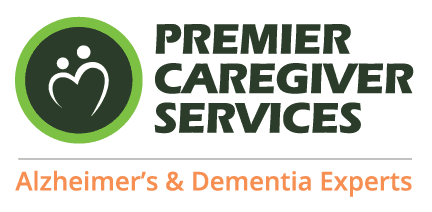

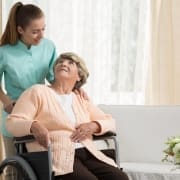
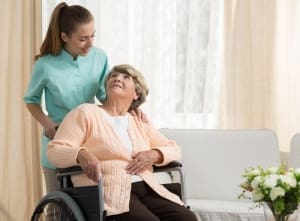 It can be extremely difficult to talk to aging parents about getting extra help at home. In a current report that discussed a survey by AARP, 9 out of 10 seniors expressed interest in staying in their homes while aging. However, it is estimated that 70% of seniors will need in-home assistance to stay safe while aging in place. So, how do you speak to your aging parents about getting outside help from a home health care agency? While it can be extremely difficult to do so, it can be done. It must be done with care and sensitivity. Otherwise, you risk the discussion turning into an argument or an immediate shutdown on the topic.
It can be extremely difficult to talk to aging parents about getting extra help at home. In a current report that discussed a survey by AARP, 9 out of 10 seniors expressed interest in staying in their homes while aging. However, it is estimated that 70% of seniors will need in-home assistance to stay safe while aging in place. So, how do you speak to your aging parents about getting outside help from a home health care agency? While it can be extremely difficult to do so, it can be done. It must be done with care and sensitivity. Otherwise, you risk the discussion turning into an argument or an immediate shutdown on the topic. 